#diagnostic and statistical manual of mental disorders
Note
Genuine question, what’s wrong with the DSM?
[OP refers to the Diagnostic and Statistical Manual of Mental Disorders, which I mentioned being unpopular among mental health professionals.] Disclaimer: I'm not a psychiatrist, I'm not a therapist, and I'm not trained in counseling. I'm a social psychology researcher. If a therapist contradicts me, listen to the therapist.
The problem with the DSM as I understand it: a lot of counselors/ psychiatrists/ etc. want to move away from a category- and source-based diagnostic system, toward a symptom-based treatment system. For example, think about Pepto Bismol: you feel nauseous, you chew pink tablets, it ends your nausea. It doesn't matter if your nausea is indigestion or seasickness or lactose intolerance. You match a treatment (pink bismuth) to a symptom (nausea) and don't waste time or money on diagnosis unless that treatment proves ineffective.
A large percent of counselors etc. would like to take the same approach to mental health. So we'd be researching treatments for nightmares (neurofeedback? MDMA?) in the long-term, and giving clients treatments for nightmares (meditation! Ambien!) in the short-term. All without worrying too much about whether the nightmares are caused by General Anxiety Disorder or a phobia or Seasonal Affective Disorder. There are many strengths to that approach.
Only, see, there's this big purple dinosaur holding us back.
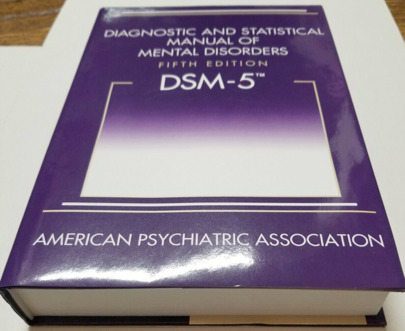
[Image ID: Hardcover copy of the Diagnostic and Statistical Manual of Mental Disorders, Fifth Edition, DSM-5, American Psychiatric Association; the title is white text on a purple background.]
So if everyone who uses the DSM also hates the DSM, why does it still exist and why do we keep buying it every time a $100 text revision gets published? Two reasons, in order of importance:
Insurance
Communication
Insurance is, I kid you not, the DSM's #1 reason for existence. American insurance companies won't cover treatment unless it's for a diagnosed illness, and so therapists put diagnosed illnesses on what they'd often be more comfortable describing as "bro, this dude is hella distressed and I'm trying to help undistress him." Note the word American on the cover; other countries have other manuals, and no other country's counselors are as chained to theirs as we are to ours. This means that the DSM helps — yay, affordable therapy! It means the DSM hurts — sets of symptoms get grouped artificially, spectra get split into categories, and diagnosis happens way too early in the therapeutic process.
Another comparison to unmental health: I don't have carpal tunnel syndrome, but my insurance provider thinks I do. I only announce that I don't because I haven't told you who I am or where I live. (If the insurance companies find us... Well, we just won't let them find us. The thing you should know is everyone is getting screwed by health insurance. Yeah, even you.) I have wrist pain and tingling. It has the wrong antecedents for carpal tunnel, and it has weird manifestations — pressure on the base of my thumb causes pain in my pinky — but my OT wrote down "Carpal Tunnel" on the forms because the alternative was a $500+ round of diagnostic scans. No one cares whether my median nerve is inflamed or not; occupational therapy still looks like "try this stretch, that stretch, this brace, that brace, and these activity changes; keep whichever combination makes the pain and tingling go away."
This kind of thing also happens in mental health all the time. Many therapists don't care — and neither should you — if your serotonin levels are low; if you're miserable and an SSRI prevents the misery, take the dang SSRI. If your mother was harshly critical and now you feel panic at any hint of criticism, it doesn't matter whether that better fits C-PTSD or NPD; it matters whether you cope with soothing self-talk or if you cope with alcohol. Put something from the DSM on the forms, and focus on finding which stretches (breathing exercises) make the tingling (panic) go away.
Communication is the biggest strength of the DSM. It means that clients can benefit from labels ("I'm not lazy, I'm ADHD") and consistent standards of treatment can be applied across different clients in different states. The DSM has huge lists of things like "if your client shows memory problems, be sure to check for alcohol abuse" or "if they have self-harm, make sure it's non-suicidal before you do anything else" that are tremendously helpful. It can help therapists who encounter a set of behaviors they've never seen before to go "client is rigid, rule-bound, and lacks insight... huh, looks like I'd better refer them to an OCPD specialist." (It's also the source of a lot of toxic misinformation on social media when symptom lists get taken out of context without that all-important differential diagnosis information, but I digress.)
However, diagnosis should never be the beginning point for therapy — it's impossible to know your client's mind without first building trust and transference — but reliance on the DSM for insurance often forces it to be. Diagnosis should never be the end point for therapy — knowing your perceptions don't match others' because of Bipolar I won't stop you hearing the dang hallucinations — but home use of the DSM often acts that way. Categorical diagnosis is limiting if your therapist is primarily interested in how depressed you are but the Beck Depression Inventory uses an absolute cutoff point for "depressed" or "non-depressed." Categorical diagnosis is useless if over 50% of people diagnosed with a depression are later diagnosed with an anxiety disorder, and vice versa. So it's an imperfect book that does a lot of things well and a few things badly, and many of its heaviest users would argue that it shouldn't exist at all.
For further reading, I recommend The Body Keeps the Score by Bessel van der Kolk. I don't agree with all the axes he grinds or all the ways he grinds them, but he's got decades of psychiatry experience and is (I hope) predicting the next paradigm shift in mental health.
For instance, van der Kolk argues that it doesn't matter if at intake your client has long blond hair and is named Linda, only to show up the next time with no hair and the name Gerald, only to come next time with short red hair and the name Taylor. The therapist should only be asking "how does the client feel about these changes?" and "what are these changes doing for the client?" If Linda can't remember what Gerald did, then focus on the terrible memory gaps that alter identities create. If Taylor became Gerald to try and please you, then focus on teaching mindfulness and self-compassion. If this is a happily genderqueer person, then figure out why they're seeking help and don't worry about the appearance changes. If this is someone who thinks in absolutes and regards their personality as constantly changing, then work on teaching them to see the world and themself with moral complexity. It doesn't matter whether Dissociative Identity Disorder exists or not; just ask your client what they need and how you can help, then go from there.
Anyway, the DSM is an imperfect solution to a complex problem, and a lot of mental health practitioners view it as a relic of a more paternalizing era. No one has come up with a really good solution for how to remove and replace it, so for now it's the least-bad option.
#dsm#dsm 5#psychology#psychological research#therapy#counseling#mental health#diagnostic and statistical manual of mental disorders#psychiatry#diagnosis#long post#(almost) nothing to do with animorphs#depression mention#ptsd mention#suicide mention#american politics#to be 100% clear: I *do not know enough* to have an opinion about whether or not Dissociative Identity Disorder exists#i only know that some very expert people have argued for it *and* that some very expert people have argued against it#and that all these very expert people absolutely agree on listening to the client howsoever the client chooses to identify#more research is needed#I reiterate: I AM NOT A THERAPIST AND NONE OF THIS IS MEANT AS MENTAL HEALTH ADVICE
587 notes
·
View notes
Text
DSM-V TR - Gender Dysphoria.PDF 2022
If anyone wants a PDF here it is
#transgender#trans#trans rights#dsm v tr#dsm#gender dysphoria#Diagnostic and Statistical Manual of Mental Disorders (DSM-5-TR)#Diagnostic and Statistical Manual of Mental Disorders
5 notes
·
View notes
Text
just doing a bit of light reading *pulls out DSM-5*
#my favorite bedtime story#diagnostic and statistical manual of mental disorders#kicking my feet like a school girl
1 note
·
View note
Text
"I'm coming over, you better not be a book about diagnosing mental illnesses when I get there!"
My unruly ass:
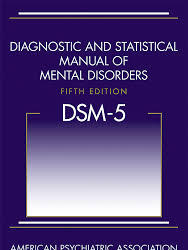
0 notes
Text
When the APA released the DSM they really said "let's make a book and fill it with The Horrors"
#DSM#diagnostic and statistical manual of mental disorders#apa#american psychiatric association#the horrors
0 notes
Text

Lmao look what I made
I’m using it to study >:D
#The plan is to spin the wheel and read and study a diagnosis every week or when I can#Not even for a class I just wanna do it for funsies#I fuckin love psychology#psychology#dsm-5#diagnostic and statistical manual of mental disorders#Version 5 text revision#Studying
1 note
·
View note
Text
you’re in her dms
i’m in her dsm-5
we are not the same
#i came up with this myself hehehe#grace does jokes#diagnostic statistical manual#aka the book of slays#and mental disorders whatever
14 notes
·
View notes
Text
PSA to all trans people that feel invalid:
The DSM 5 has an entire section on gender and gender dysphoria. Don’t lose hope, there are still organizations that believe you.
#for anyone that doesn’t know the dsm 5 is the#diagnostic and statistical manual of mental disorders fifth edition#it was made by the American psychiatric association and is basically considered the Bible of psychology
1 note
·
View note
Text
lmao just typed in "football documentary ncaa" in youtube and i think i went down the wrong rabbit hole. my tennessee vols orange blood is boiling at the thought of watching any of these.
#back up back up baCK UP#UNDO#BIG MISTAKE#ABORT MISSION#oof this ahs meets dsm idea might not be the best one folks#ahs = american horror story; dsm = diagnostic and statistical manual of mental disorders#irl post#writing
0 notes
Text
Understanding the theory’s ascent from fringe forums to scientific journals to the halls of Congress helps clarify some of the moral panic and pernicious logic employed to restrict the autonomy and rights of trans people today. It also serves as a vivid example of how questionable science can be weaponized to achieve political goals.
A number of studies on trans youth have taken on “misinformational afterlives,” says TJ Billard, an assistant professor of communications at Northwestern University and executive director of the Center for Applied Transgender Studies. Among them are four papers published between 2008 and 2013 that have together been used to claim that most children “grow out” of gender dysphoria and opt not to transition. All have been shown to have numerous shortcomings. In some, nearly 40% of young people surveyed did not meet the criteria for the official gender dysphoria diagnosis in the Diagnostic and Statistical Manual of Mental Disorders edition used at the time. In two, researchers classified some subjects as having detransitioned—or reversed their transition—purely on the basis of whether a parent or third party said it happened. A 2018 study found that three of the papers labeled those who had stopped responding to researchers as detransitioners; and in one, a subject who identified as nonbinary was classified as detransitioning.
“There’s a wealth of bad science that is out there, and this science doesn’t stay in journals,” Billard says. Parents unfamiliar with trans issues, who don’t understand gender-affirming health care and don’t have the expertise to read the studies themselves, often fall under its sway.
... When Littman took up the question, she decided to survey parents, who she felt would be easier to reach than trans youths themselves. In her Methods section, she writes that “to maximize the chances of finding cases meeting eligibility criteria”—meaning youths who suddenly became gender dysphoric, according to their parents—she turned to three websites: 4thwavenow.com, a “community of people who question the medicalization of gender-atypical youth”; transgendertrend.com, which says it’s concerned about “the unprecedented number of teenage girls suddenly self-identifying as ‘trans’”; and youthtranscriticalprofessionals.org, a now-private website that was “concerned about the current trend to quickly diagnose and affirm young people as transgender.”
The results were in line with what one might expect given those sources: 76.5% of parents surveyed “believed their child was incorrect in their belief of being transgender.” More than 85% said their child had increased their internet use and/or had trans friends before identifying as trans. The youths themselves had no say in the study, and there’s no telling if they had simply kept their parents in the dark for months or years before coming out. (Littman acknowledges that “parent-child conflict may also explain some of the findings.”)
Arjee Restar, now an assistant professor of epidemiology at the University of Washington, didn’t mince words in her 2020 methodological critique of the paper. Restar noted that Littman chose to describe the “social and peer contagion” hypothesis in the consent document she shared with parents, opening the door for biases in who chose to respond to the survey and how they did so. She also highlighted that Littman asked parents to offer “diagnoses” of their child’s gender dysphoria, which they were unqualified to do without professional training. It’s even possible that Littman’s data could contain multiple responses from the same parent .... But politics is blind to nuances in methodology. And the paper was quickly seized by those who were already pushing back against increasing acceptance of trans people.
... Many people who are citing Littman’s work probably haven’t even read the study or seen the correction, Billard says: “People are citing a Reddit post in which somebody invoked the idea of Littman and her research.” Littman agrees with this characterization. “It boggles my mind how people are comfortable holding forth on topics that they haven’t actually read papers [about],” she says.
... Lawmakers in more than 25 states have introduced anti-trans bills during 2022 legislative sessions. Politicians writing such legislation have plenty of questionable studies, partisan doctors, and associations that lobby against transgender rights to draw on. Littman’s ROGD study is often a go-to. The Coalition for the Advancement & Application of Psychological Science wrote in 2021 that many of the “over 100 bills under consideration in legislative bodies across the country that seek to limit the rights of transgender adolescents” are “predicated on the unsupported claims advanced by ROGD.”
2K notes
·
View notes
Note
I don’t know if you already wrote about this so forgive me if this is a repeat question but, what do you think about Leona’s depression? I feel it’s pretty obvious in game and yet it’s always glossed over as him being ‘lazy’ idk but I don’t find many talking about his really shitty mental health with any seriousness.

Surprisingly I haven't addressed this (at least not in detail)! So thank you for bringing this to my attention; I definitely feel like I've heard people (especially Leona fans) discuss this quite frequently. If you look in the right places, you’re sure to find insightful commentary on the subject! I know I certainly have, but I've yet to say my own piece on it yet.
Now, before I actually get to actually rambling, I want to preface this post with a few points so we can walk in knowing the perspective I'm coming from. Analysis isn't a "one size fits all"! My experiences and background will color the lenses through which I view Leona’s mental health.
First and foremost, I usually don't go out of my way to claim, "this character has X condition" beyond what is outright stated or implied in canon. That does NOT mean that I disapprove of fans who may have their headcanons that say otherwise or project onto or relate to characters' mental health. You can consume the media you like however you want! I am just saying that I don't have this preference so I feel somewhat uncomfortable speaking on this matter.
Secondly, I am trying to approach this situation from a very clinical viewpoint (as I do have knowledge in this area). This means that when I look for “implications” or read between the lines, I am doing so as objectively as I can. It’s how I choose to process and understand characters from a health angle. This does not mean that my opinion is certain; you could very well find someone else in this area that gives you the opposite opinion. As always, I warn you that my response is for fun, it is NOT meant to be taken as medical advice.
Lastly, PLEASE READ THE ENTIRE POST before you comment or share your own thoughts. I'm up for having a discussion, but I ask that you not do so without getting the full context of my thoughts. It’s a lot of information, and I did my best to break it down in a way that (I hope!!) is easy to understand.
CONTENT WARNING: due to the nature of the question at hand, I will be discussing or mentioning potentially triggering topics such as ***depression, suicidal ideation, dieting, homophobia, and substance abuse.*** Please look away if you are not in the right headspace to read about such topics.
Okay, let's rip the band-aid off now: I don't think Leona is clinically depressed.
Pause. Rewind. Take note of my careful wording there: clinically depressed. I don't think Leona is clinically depressed. What does that mean, and how does that relate to "being depressed"?
I think when people describe Leona as "depressed", they commonly mean that he "has depression", not that he is just feeling sad or has low self-esteem. By "having depression", I'm going to assume they are referring to "major depressive disorder", which is the technical term for the condition.
"It's just an abbreviation of the longer term. What's the issue with using 'depression'?” you're probably wondering. “You understand that we mean major depressive disorder.” Well, equating the two does NOT a diagnosis make.
Mental conditions such as major depressive disorder are documented in a handbook known as the DSM (or the Diagnostic and Statistical Manual of Mental Disorders). The latest version, the DSM-5-TR (5th edition with text revisions), was published in 2022. The DSM is a manual that sets forth criteria for each diagnosis in its pages. Of course, this includes major depressive disorder—and it may surprise you to learn that Leona does not meet its diagnostic criteria.
A diagnosis of "depression" (the term I will henceforth be using as shorthand for the disorder) is much more than having persistent feelings of sadness or hopelessness, being unmotivated/lazy, and wanting to sleep often. (I bring up these three things specifically because they are the ones I see being pointed at most frequently to “prove” the diagnosis.)
In order to be formally diagnosed, an individual must be experiencing at least 5 or more of the following symptoms during the same 2-week period:
Depressed mood most of the day, nearly every day.
Markedly diminished interest or pleasure in all, or almost all, activities most of the day, nearly every day.
Significant weight loss when not dieting or weight gain, or decrease or increase in appetite nearly every day.
A slowing down of thought and a reduction of physical movement (observable by others, not merely subjective feelings of restlessness or being slowed down).
Fatigue or loss of energy nearly every day.
Feelings of worthlessness or excessive or inappropriate guilt nearly every day.
Diminished ability to think or concentrate, or indecisiveness, nearly every day.
Recurrent thoughts of death, recurrent suicidal ideation without a specific plan, or a suicide attempt or a specific plan for committing suicide.
At least one of the symptoms should be either 1) depressed mood or 2) loss of interest or pleasure in activities they previously found enjoyable. Furthermore, the symptoms must cause what is known as "clinically significant distress", which is defined by impairment in important areas of functioning. This includes, but is not limited to, socialization, occupation, and/or education. The symptoms must also not be the result of substance abuse or another medical condition, and the individual must ever have experienced mania or hypomania.
Let’s briefly go through each criterion + additional documents and see what evidence there is or isn’t to support it:
We do not have his medical records to cross reference, so for the sake of convenience let’s assume no underlying or additional medical conditions.
We must consider additional context about family, lifestyle, etc. which can confound his symptoms. For example, as a prince, Leona has grown up having most things done for him by servants. This is what he is used to. So when we observe Leona not doing basic things for himself (getting food, doing laundry, making his bed), how much of this can we truly attribute to an underlying condition and how much of this can we attribute to Leona being accustomed to a certain kind of lifestyle?
Leona (at least from what we know of) does not experience mania, nor is he depicted as taking mind or behavior altering substances.
Of the first two criteria, Leona must fit into one: either 1) depressed mood most of the day, nearly every day, or 2) markedly diminished interest or pleasure in all, or almost all, activities most of the day, nearly every day. These depend on how you interpret his actions and behaviors. Personally, I don’t think Leona strongly fits into 2 because he still has an interest in his hobbies like Magift/Spelldrive and playing chess (though his involvement in it varies depending on the context). I will concede that there is stronger evidence for 1 over 2, as Leona has definitely expressed sadness and despair regarding himself and his future prospects. It is these thoughts that drive him away from home and keep contact with his family at a minimum. It is these thoughts that prevent him from seeing himself as worthy or even capable of change—a sentiment he shares in book 6, when he encourages Jamil but does not grant himself the same kindness or optimism. For this reason, we will go with the first criterion.
He has not experienced notable weight loss nor gain, nor a notable increase or decrease in appetite. Regarding his general diet, Leona has expressed a preference for meat and rejects vegetables. This by itself does not really provide any useful information in of itself; many people have this preference.
Leona does not experience a slowing down of thought. He is still very sharp and quick-witted in responding to his surroundings, especially in potentially dangerous ones, and coming up with an appropriate plan to counter. It can be argued that Leona has had a reduction in physical movement, as many characters often make remarks about how they perceive him as lazy or not doing much. However, this criterion actually refers to the speed at which one completes an activity and as far as I know, Leona is not said to be moving sluggishly, he only conducts himself in a manner that can be described as "lazily elegant". Even if we stretched the definition to encompass long-term goals he is putting off (like graduation), this criteria is still not counted for Leona since the wording used in the DSM-5-TR states “slowing down of thought AND reduction in physical movement” must be present. In other words, both must be true, not just one of them.
Leona does seem to experience some level of fatigue or loss of energy. This could be one way of interpreting his desire to sleep excessively instead of tending to more meaningful matters (like class). Fatigue, in this case, can also refer to emotional or mental fatigue. The sleep, then, can serve as a means of escape from reality for Leona, but it does not indicate actual physical tiredness. Rather, the tiredness can be intangible. This is also a potential explanation for his lack of motivation when it comes to some activities, especially those that demand him to take charge.
Leona does appear to experience feelings of worthlessness, though perhaps not excessive or inappropriate guilt. In fact, I would wager Leona does not demonstrate the latter, although this could be attributed to the fact that we are not in his head and he does not open up to others about his feelings. For example, we still don't know what his feelings are on almost killing Ruggie in a fit of rage. This does not discredit this criterion though, as the wording in the DSM is “feelings of worthlessness OR […] guilt” meaning one or the other suffices. It is no secret that Leona seeks recognition for his skills—something he was denied as a child and even put down for. While he is aware of his strengths, he has moments when he doubts himself (stating that he can’t change, or giving up when he realizes his plans won’t work so what’s the point in trying?), the contributions he can make (even when his older brother reassures him he can help their country), and encouragement from others (Jack telling him his play inspired him).
As I've said before, Leona does not have a diminished ability to think or concentrate. It has been shown to us time and time again that he doesn't do schoolwork not for lack of trying or lack of understanding, but because he thinks of himself as above it. Leona has already been tutored by the finest teachers royal money can buy, so he believes there is not much else for him to learn. He is also not shown to be indecisive--he can make decisions very quickly and can guide others or at least convince them to go along with him.
Leona does not have suicidal ideation or have recurring thoughts of committing suicide/death. While it's true that this is a game rated for ages 4+ (and therefore has restrictions on what content is and is not allowed in it), TWST has demonstrated to us that there are ways to imply suicidal ideation and other dark themes without explicitly saying it. (One notable example is Idia in late book 6, where he drops lines like "I'll go with you" and expresses dissatisfaction with "this world" to Ortho, who is known to be dead. To this, Ortho reassures him and encourages him to keep living. In fact, I could go on a whole tangent about how Idia better fits the criteria for major depressive disorder, but we're not going to get into that here.) The fact that TWST does not really imply this about Leona makes me think this is not true of him.
It can be said that the symptoms Leona does have are clinically significant, as his behavior is shown to have significant impact on his studies to the point where he was held back a grade. This was not because he did not know the material, but because he failed to find the motivation to attend class and to do his assignments. It also appears that Leona didn't really make an effort to work toward his future until book 7, when he actually talks his internship plans and about wanting to graduate.
We may guess that the symptoms persisted for two weeks or more (given Leona’s history and involvement in the main story), but the frequency of the symptoms is unclear since the game controls what we see of Leona and what we don’t.
Taking all of that into consideration, Leona does in fact exhibit depressive symptoms, but only 3 at most (I say “at most” because we have no idea about the true frequency at which some behaviors occur; we aren’t with Leona 24/7, nor has he reported it to us) out of the 8 total criteria. That’s 2 short of a diagnosis.
“But wait, there’s a lot of information missing here! We don’t have medical records, his weight and appetite changes, etc.” That’s true—but see, the main issue I take with diagnosing fictional characters in the first place is that we oftentimes do not know a character in detail enough to understand the full scope of their lives and symptoms. Noticing a few details is one thing and valid to an extent, but to evaluate an individual is not purely observational. This is particularly true for TWST characters, as even though there is plenty of content to refer back to for behavior, there is still a lack of really going into daily activities or deep feelings (beyond the one post-OB flashback for the OB boys). We cannot observe their behavior extensively. Because of this, tons of key criteria may not be visible to us from the audience’s perspective, let alone a medical history or other data to consider for assessment. We will almost always have an incomplete profile of a fictional character. Health is holistic and not entirely based on what we as individuals see or on all anecdotal evidence.
Just as health considers all parts of the individual, we, too, must consider individual cases of depression. It is possible for depression to exist without a diagnosis—many people (especially older adults), unfortunately, go undiagnosed for their condition. At the same time, it is possible for Leona to have depression which manifests in an atypical way. Each person with depression presents differently than the last, so I so not intend to make any blanket statements about the general population with this condition. The only statement I am making here is that based on my own interpretation of the current lore TWST has granted is, Leona Kingscholar does not satisfy the criteria for a formal clinical diagnosis, at least not for major depressive disorder as is defined by the DSM-5-TR.
Interestingly, Leona does fit the diagnostic criteria for a subclinical form of depression in a 1994 version of the DSM (IV). Minor depression or minor depressive disorder, colloquially known as “everyday depression”, is defined as having 2–4 depressive symptoms persisting for more than 2 weeks. One of these symptoms must be either depressed mood or loss of interest. It should be noted that this terminology is no longer recognized, as new information is added and dropped from the manual all the time. The information is flexible based on the consensus of a panel of hundreds of experts. Older versions of the DSM can be horribly outdated and it is not advised to reference them over newer ones. (As an example, "homosexuality" was legitimately listed as a mental illness in the very first version of the DSM. Yikes. Thankfully, this was dropped from the DSM-II. Other conditions like "multiple personality disorder" are granted new names like "dissociative identity disorder" or reworked altogether as our studies and understanding of mental health and science improve. It is important to keep up with the research coming out and update our approaches accordingly.)
We do not currently have a label for Leona’s situation aside from perhaps experiencing depressive episodes (periods of notable sadness lasting under 2 weeks) and exhibiting some depressive symptoms. I must stress that just because we lack a full-blown diagnosis, it doesn’t mean that it doesn’t impact his life. Leona is shown to very clearly be struggling with his mental health. He spends a lot of time in bed, typically cannot be motivated to attend class or do complete assignments, and has moments where he thinks very lowly of himself in spite of the confidence he exudes to others. What's more is that because Leona does not speak to others about what he's going through, it comes off as laziness or arrogance to his peers. Think of it this way: if you have a bad day and snap at a stranger or an acquaintance, the stranger/acquaintance is far less likely to grant you grace or forgiveness for your behavior compared to, say, a friend. They are not as familiar with you, so they will have less patience and are less likely to consider what you may be going through on a personal level. This also applies on a fandom level; if a fan is not actively reading between the lines, they, like Leona's peers, may miss the depressive symptoms he is displaying because they aren't looking for it.
How many people can we say are close friends with Leona for him to open up to them about his circumstances? I would say Leona barely even lets his own dorm members be intimate enough with him to let them know about this part of himself. He has Savanaclaw backing him, but he probably does not talk to the mobs extensively. Ruggie is his errand boy, but I doubt Leona pours his heart out to him. And Jack is the newbie who did technically betray their dorm, so Leona might not trust him. Forget about people beyond his dorm. Even his family is not much better off; we've seen that Leona tends to brush off his brother's friendliness and attempts to make amends. There is no strong support system in place for him, which is tricky because Leona perpetuates it by keeping others at bay. In the light novel adaptation of book 2, Leona has an inner monologue about how he is afraid of letting others give him hope because it will encourage him to try again, only to fail another time. I imagine similar logic applies here; he is afraid of showing his vulnerable side because it might give him hope for change when he as late as book 6 expresses that he has given up on himself. I think that this is the detail about Leona most look to when they consider his mental health. The hallmark of depression is, after all, the feeling of perpetual sadness and despair itself. Most do not realize that other factors are considered.
From a clinical lens, it is not “obvious" that Leona is depressed. However, I understand why the prevailing sentiment tends to skew in the opposite direction. For the layman, it may be difficult to distinguish what is and is not clinically significant enough to warrant an actual diagnosis. Again, most will cite the same three pieces of information to support the depression reading: Leona's irritability, his unwillingness to participate, and the rejection he experienced as a child (which has now manifested as self-doubt and low self-esteem). Characters are often judged based on fans' own experiences, and this naturally comes with biases and subjectivity. Thus, some fans may project their own understanding or preconceived notions of what the "typical" depressed person acts like in their head onto Leona. This is normal human empathy at play.
I believe that other fans see depression in Leona either because they experience it themselves or are familiar with someone in the same shoes. It can be difficult, and at times we can find solace and solidarity in fiction, especially if we find a character that “speaks to us” and seems relatable. That character may be Leona for some people. If you see do see him in this light or relate to his situation, I’m not invalidating your feelings. On the contrary, I'm happy that you were able to find comfort in him and that a piece of media you love can serve as a coping mechanism. You keep on doing you!
It is at this point that I will reiterate what I said at the start with a little extra nuance: I do not think Leona clinically depressed BUT I do believe he has depressive symptoms and poor mental health as the result of his cumulative circumstances. It is possible for him to have major depressive disorder, but we cannot determine this for certain with the information available to us right now. We are still missing several key components that would typically be considered in the evaluation process.
I think it's important to step back from focusing on labels and instead focus on the individual experience, and how you can still grow as a person and not let a perceived label define you. Leona is definitely working on himself! Changing, particularly changing a deeply ingrained mindset, takes much time and effort. We may not see the progress since Leona tends to hide it and/or we have limited intractions with him. We may not always see giant strides because the process is difficult. Even so, Leona is trying to jump over those mental and emotional hurdles. He's putting his all back into Magift/Spelldrive training. He's attending classes and doing the assignments. He's going home for the holidays. He has an internship planned. He wants to graduate.
I've enjoyed following Leona's journey of growth and self-development and seeing all the intense discussion surrounding that. It all comes from a place of love and wanting to support the characters we care about, no matter how we may individually view him.
#twst#twisted wonderland#Leona Kingscholar#disney twisted wonderland#disney twst#twst character analysis#twisted wonderland character analysis#notes from the writing raven#question#tw//depression#tw//suicidal ideation#tw//suicide#twst analysis#twisted wonderland analysis#Cheka Kingscholar#Falena Kingscholar#Farena Kingscholar#tw//substance abuse#tw//dieting#Jamil Viper#Idia Shroud#Ruggie Bucchi#Jack Howl#Savanaclaw#tw//homophobia
254 notes
·
View notes
Text
An Uncommonly Discussed Trauma Symptom

Disclaimer: This is in no way a substitute for therapy: it’s only psychoeducation. Please consult a therapist and/or hotline and get the help you need if you are experiencing mental health difficulties, especially if experiencing distress or issues that feel unmanageable.
Warnings: Mentions and discussion of suicidal ideation, death, abuse and violence.
Special thanks to @ashanimus and @childlikegoblinqueen
Ever heard of "the sense of a foreshortened future"?
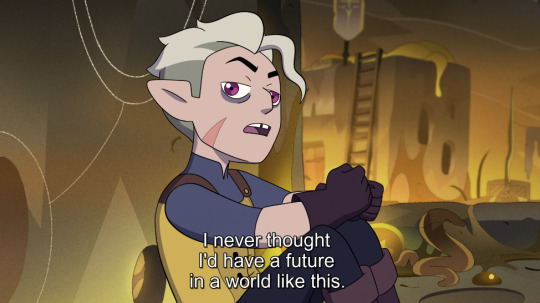
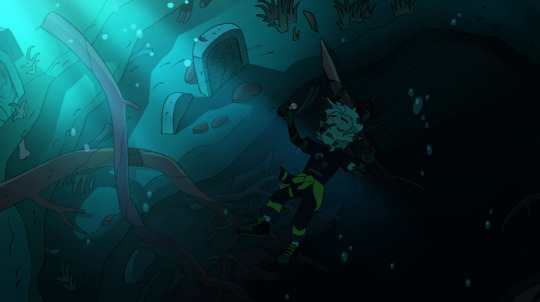
If you have suffered trauma over a sustained and long enough period of time, you may find that you can't imagine yourself living long. You can't see yourself reaching milestones, because it hardly makes sense to your mind that you can go on for that long...given how much you have felt like you've escaped danger, given just how many close calls you have had in life.
Yet the sense of a foreshortened future is a separate thing from suicidality.
If you have both of those together though, it really isn't fun because they may feed one another in a cycle, in the way that symptoms under the same mental health condition have the potential to do the same.
It isn't a desire for pain to end (which is what suicidality is), more so a generated expectation that takes root, and a framework which a survivor tries to fit their experiences into, with the goal to get things to make as much sense as can be. Because it's often the easier thing to devise a simple formula, to feel certainty and to manage one's expectations: rather than embrace the grey areas of uncertainty about how life will turn out.
It's almost as if this feeling of a foreshortened future is in a tug-of-war match between what appears to be solid reasoning, and a person's natural survival instinct along with the hunger for a meaningful life.

This symptom isn't on the *official* criteria for a psychiatrist or clinical psychologist to make any diagnoses, it is not listed in the Diagnostic and Statistical Manual of Mental Disorders, Fifth Edition (DSM-5) or International Classification of Diseases, 10th Revision (ICD-10). But informally it is sometimes categorized as an avoidance symptom under both PTSD and Complex PTSD, and also under longer-term depression.
(however, I think it can extend to other conditions. The key criteria is it emerges from repeatedly experiencing horrible things until it makes sense in one's head to expect themselves not to last much longer)
If you hop onto Google Scholar to find proper research about it, the findings are very scarce because it's hard to define it, empirically measure it and quantify it in the first place.
Again, it's not the same as suicidal ideation because a foreshortened-future view is an expectation, while the latter is about a desire.
I wasn't taught about this symptom in any training and supervision before becoming a licensed therapist, nor did any of my own therapists bring it up as psychoeducation when I saw them. It was only through online articles on informal websites that I stumbled upon the phrase and it all clicked for my long-term experiences.
But I feel it is good knowledge for anyone providing psychotherapy to bear in mind.
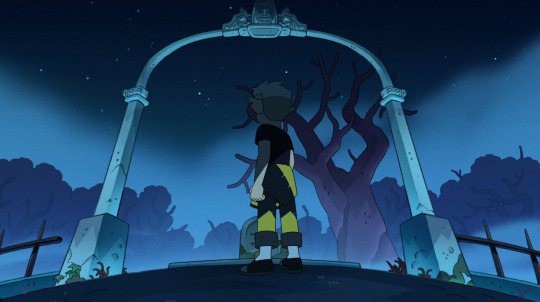
In The Owl House, the grimwalker lore weaved into Hunter's arc, can shockingly be linked with this symptom, symbolically and thematically.
But the show's age rating means it would likely be too dark for the writing team to explicitly incorporate it into Hunter's dialogue.
Hunter was a lamb marked for the slaughter early on.
He has questioned his survival and ability to thrive.
The following article on Psychology Today describes Belos's long-term influence on Hunter pretty well and provides info that strengthens the points I'm making in this whole post:
Link
It's bad enough that before Hunter and Luz found Belos's mindscape, he struggled with the fear of failure to the extent that there was already the raging inner battle between his primal survival instinct and the already knackered part of him that sought eternal rest from his suffering (showing up as suicidal thoughts):
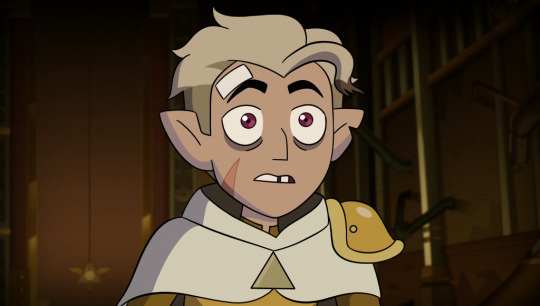

Fast forward a number of episodes...and we see the looming horrors in Hollow Mind that culminated in Hunter's discovery of what his predecessors went through:

followed by permanent rejection by his parental figure:
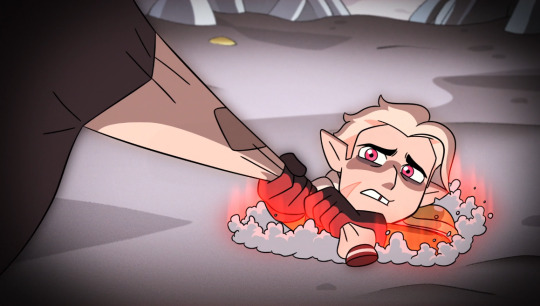

The power held by a foreshortened-future view, and its potential to isolate you - to make you feel like you're invisible, or a ghost - can be strong.
What Hunter said to Gus in the following screencaps sums up what it feels like pretty well:


In the context of having an abuser, it emerges from the negative beliefs they impose on you. It gets tricky if those beliefs are internalized, and which may remain internalized even after you get to safety and away from said abuser. Internalized until they become what you expect of your life.
It's about those thoughts which you know in your rational mind are lies, but you feel their apparent truth. They go more silent when you practice self-care but they return to try and reel you in again, and to a degree, they succeed in getting you to believe them all over again, before you renounce them once more.
Being in the C-PTSD Club along with Hunter, I personally experience the feeling of a foreshortened future as a voice deep down which almost always says that life feels too long and it therefore feels absolutely weird, like it doesn't make sense. Life feels too long, contrary to that commonly heard cheesy quote, "Life is too short to blah blah blah".
When I reached milestone birthdays like my 21st, it was confusing and made me irritable, feeling an itch deep down that I could not scratch.
The voice asks me why the heck I'm still around when it apparently doesn't make sense. It's a pervading feeling which can be pretty annoying, though I have it far enough in the background that it's like noise instead of being a source of distress.
It's not the easiest thing to explain this, but Hunter may have confusing thoughts creeping into his head like "Caleb didn't last long, why would I?" whereby such thoughts have a strange feel to them. They aren't exactly hard rules, nor are they distant enough that they can be easily brushed aside. Brain hurty, emotions spooky.
After the horror of this night:
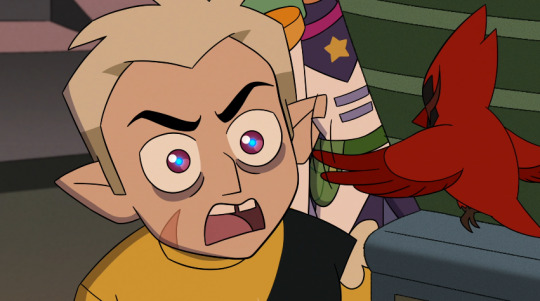
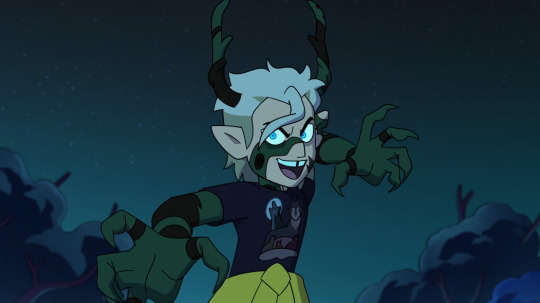
I can definitely see Hunter wrestling with this symptom from time to time. No doubt. It was a major loss of autonomy and control that would significantly aggravate what was already brewing deep down.
I'm doubtful that the crew even established this on purpose (unless they actually consulted trauma experts and/or experienced mental health practitioners), but...this one symptom ties in with grimwalker lore so perfectly...it's hella fascinating that all Hunter's predecessors' lives (including Caleb's) were cut short. Prematurely.
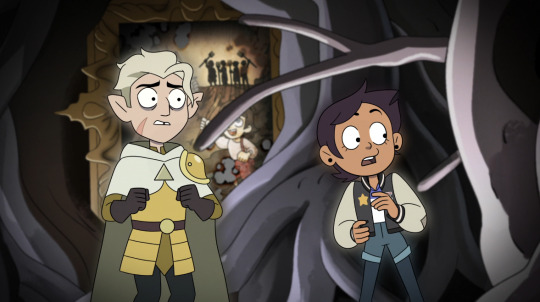
They came with an expiry date set by their abuser: something very characteristic of this foreshortened future feeling, though not unique to survivors of abusive home environments (e.g. if you experienced natural disasters over many years, yet had a loving family, you could also feel like you may not live long). And Hunter's experience of seeing the grimwalker graveyard in Hollow Mind is a shockingly visceral and visual metaphor to symbolize a concept like this, which matches perfectly with his symptomology as a Complex PTSD survivor.
The battle for inner peace has a high price: it is ongoing, and extends beyond him being physically free from Belos. Because Hunter can't just trim away the Belos-related memories from his earliest years and formative years. He can't forget, but he can choose to give those memories less attention, and choose not to let them take the steering wheel in the long-term.
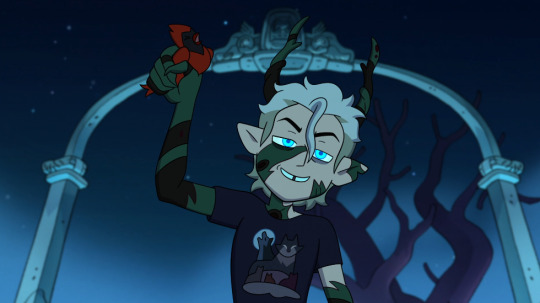
In my opinion, the possession scenes don't just portray the physical experience of an abuser returning to try regaining control or restoring the status quo of having the survivor in their grasp.
The scenes also represent the abuser's imprint upon the survivor that lasts beyond the duration for which Belos is present in Hunter's life. Belos is the kind of abuser that is so insidious that he knows he could leave some marks that outlast his directly physical presence, in the event that he meets his own end. He would have definitely thought about this. Leaving the kind of grisly reminders that won't ever technically fade away (not to be confused with how they can certainly "fade further into the background" via therapy, new positive experiences and the support of loved ones).
For example, the patterns of the permanent scars on Hunter look so much like the patterns on Philip's own face and body. When possessed, the markings were dark green, later faded to the colour of scar tissue once Belos leaves his body.
As we all know, it's hella sad to imagine Hunter having to look at himself in mirrors throughout the rest of his life. It was awful enough that he had the haircut-related panic attack.
If we tie all that back to the symptom of a foreshortened-future view: Hunter might be left with a spooky nebulous feeling (that will alternate between coming back to haunt him, and subsiding) that he too has some expiry date that is different from how the people around him naturally and confidently expect to live a substantially long life. As a cult survivor with C-PTSD, Hunter can't afford the luxury of those natural expectations.
I don't mean that he might plan a day in the future to end his own life, not at all. But he may have a strange ghostly expectation of how long more he has till his life may come to an end, and he wouldn't be sure of how this subconscious expectation came about.
The darker days of navigating the confusing mess of his complex trauma may feel like exhaustion from paddling and swimming to keep your head above water to breathe.
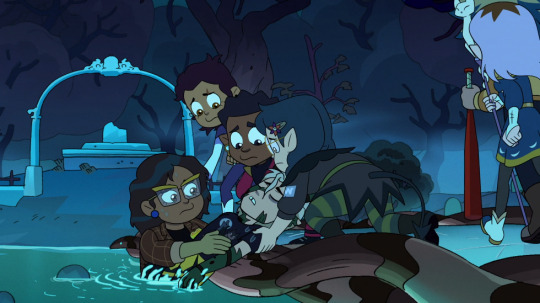
Speaking of water and drowning, plus the theme of sinking down vs. rising back up above the water surface...the fact that Camila jumped in to bring him back up, his friends helped to pull him out, and Flapjack passes new life to him...this is also some crazy powerful symbolism for surviving complex trauma.
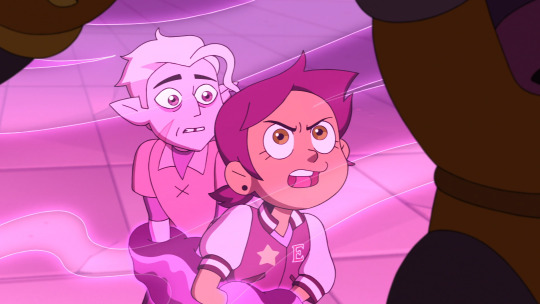
Falling back on a support network, your "tribe", that won't abandon you.
My other Hunter analyses (link) go into more detail about his support network and why he needs it.
I was talking to a friend about all this: she has relevant lived experience and mentioned that poor Hunter would reach a milestone birthday and perhaps cry at least a bit on that day, maybe even during the birthday party: out of sheer confusion. The confusion would be silently screaming "But...this doesn't...make sense?". And he might feel confusing waves of darker emotions along with a strange sense of joy.
He may make a decision to start a family with Willow, and a confused questioning voice will bother him now and then with "How are you still here, doing this and living to see this?".
(...also, when is his birthday...? Is it documented in some Emperor's Coven records that they will find..? Even the mere concept of having a birthday is messed up for him to think about, given the purpose behind his creation)

Complex trauma changes its survivors' relationships with the world, not just with people, and this can even apply to their relationships with things like joy and how joy is experienced.
Flapjack's absence would have bred survivor's guilt. It might translate into Hunter questioning whether he is worth the love and effort his friends put in for him. This feeling could emerge at random moments over the years in his life.
Visually, I feel that these two frames - the lighting (which I'd say is unique among all his scenes because they are parts of his arc that stand out so much), his pose, his expression - somehow capture the experience of how complex trauma is chronic and long-term:

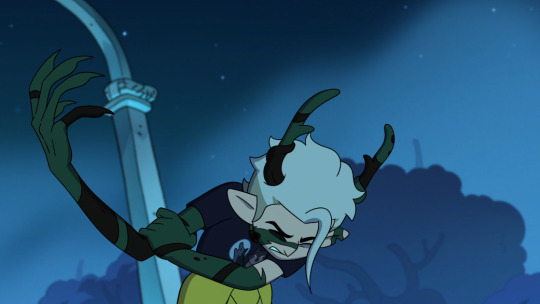
The currently most known C-PTSD memoir out there, What My Bones Know by journalist Stephanie Foo, has some content that I feel matches nicely with what Hunter is experiencing in the two separate scenes above.
The author describes something she calls "the dread" (if you get the book, it's first mentioned on page 51). I would call it the amalgamation of multiple things such as shame, the fear of impending harm, self-doubt where you question whether you did something wrong, fearing that someone hates you, etc.
And basically, good lord my poor boy in the first screenshot..with that expression of suspecting what he thought was Belos's presence in the room: something about it fits the book author's words, feeling like she was "on the precipice of fucking everything up".
That's certainly something that would cross Hunter's mind multiple times as he processes the worst night of his life. That he could have done something to prevent all that.
With so much pre-existing worry that his friends and family might actually hate him, the possession scenes and Flapjack's death would definitely shake his foundation and I'm sure he isn't past this kind of ingrained thought pattern at all:

Second, the book author calls C-PTSD a shapeshifting "beast" (page 316). And when she fights it, she must use a different strategy depending on what form it takes, and that it will keep coming back from time to time in another form. Which is why there is a particular exhaustion one feels from having to adapt to each battle.
For Hunter, the second screencap of him fighting Belos's coercion in a direct physical manner is the first of many battles he has to win in his mind, even after Belos is gone for good. Outlasting whatever invisible assailant is trying to get him, as he faces inevitable episodes of being retraumatized in the future: these are called emotional flashbacks (one of the symptoms of C-PTSD).
Being a survivor of complex trauma who experiences a weird sense of time via a foreshortened-future view, can feel like being on the outside looking in.
But! To end this meta on a hopeful note, I should reiterate something from my most recent long meta about Retraumatization vs. Self-Soothing, the first part of Hunter's important speech in Thanks to Them touches on wild magic and palisman. Wild magic represents freedom, while palismen (quoting the Bat Queen) represent close bonds in relationships, emotion, and conviction.
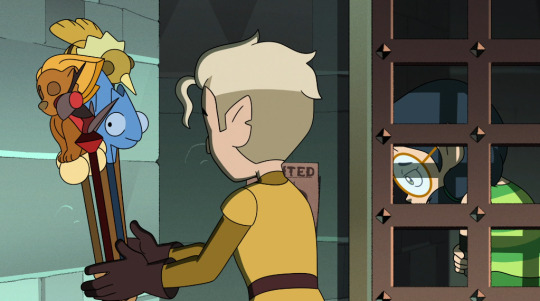
Applying this to how we can navigate the swampy waters of a foreshortened-future view, Hunter can use his newfound freedom and sense of agency to create the story he'd like to tell about his life. It is pretty much impossible to avoid bringing beliefs from our young formative years into adulthood. But expectations (which have a direct link with emotions we end up feeling) of ourselves and of life can be altered over time, so they become less rigid and instead more open to new possibilities.
He has an inquisitive mind which is a big plus point in understanding the impact of what he has been through, and I have full faith that he'll do just fine in that regard because of the courage we have seen in him.
Among the hobbies he explores in the future, flyer derby will be one example of an excellent outlet for him because of its physicality: trauma and grief are not only emotional battlegrounds but also highly physical ones. The body is also very much involved e.g. feeling the lead-like weight of depressive moods in one's body, feeling the physical tension of hypervigilance, etc.
It's fantastic that he has Luz, Willow, Gus and company, he will have a very meaningful career, and he'll have everyone else in his large found family.

His story...his heart...his resilience and vitality...it's all truly inspirational.
We might learn even more about the grimwalkers in the finale and that would undoubtedly prompt me to do a shorter Part 2 on top of this meta.
527 notes
·
View notes
Text
Psychosis and schizo spec experiences are messy, and complicated, and often don't fit the societal narratives.
Many psychotic people have experiences that look like symtoms of other disorders, and strict categorization and separation between symptoms and disorders often don't take schizospec and psychotic people's experiences into account.
Schizophrenia, as an example, is commonly classified as a neurodevelopmental illness, and comes with a range of experiences of neurodivergency that do not neatly fit into any one box/neurotype, yet can be both very disabling and very profound. Similarly, most schizospec people are prone to dissociation, and there's an overlap between plural people and psychotic communities.
For this reason and others, I'm not a fan of separatism in the neurodivergent community, which too often targets psychotics, by focusing on proving that this or that group is not "crazy" like "those people".
Occasionally this takes on some insidious forms within the different communities, where "deviant experiences" of odd symtoms that don't align neatly with the narrative of the associated disorder, are dismissed as fake, problematic, harmful - occasionally as ableist in and of themselves. This narrative is actively harmful to psychotic people.
I'm not a fan of arguments that hinge on the notion that large numbers of people are lying or mistaken about their lived experience, and sincerely, as someone who has read an unreasonable amount of research throughout my studies, psychological science is interesting, and useful, but it is never exact, and it is full of biases, blind spots and bullshit science hidden behind statistics and overreaching conclusions. Pointing out bad research is not "anti science", it is in fact pro science. I am a scientist.
I consciously reject the notion that the diagnostic manuals are anything more than a semi competent attempt at making a comprehensive classification of symptoms. This doesn't mean that these constructs aren't hugely influential, or that they don't describe real symtoms, but it is important for Mad and Neurodivergent activism to move beyond this reductive understanding of mental diversity.
So while I'm happy to provide info on the definitions of various disorders etc, because it has real world applications, I am more interested in what we all have in common, and in finding solidarity across diagnostic borders.
In the end, my solidarity is with the weird kids. The quiet ones, the fucked up ones, the ones who don't feel like they belong or fit anywhere. With symtoms and experiences and diagnoses like an ill-fitting set of clothes.
I want to fight the stigma, but I don't want to fight it by assimilation. It is not our job to be "normal" or "easy to understand and categorize".
I want radical inclusiveness, and I want it now. I want the judgement of harmless odd behaviours to stop, I want the mental health communities to stop fighting each other and throwing each other under the bus in the name of being palatable.
We don't have to be palatable to be worthy. We don't have to fit into a neat little box to be taken seriously. We are all deserving of non-judgemental love and support.
Our goal should not be to be neurotypical, it should be to live happy and fulfilling lives within the circumstances we were dealt.
Us psychotic weirdos need better options than to be monsters, or to be invisible.
#actuallypsychotic#pseriouslyschizophrenic#schizospec#neurodivergent#discourse#mad liberation now#I'm just having a rant at y'alls expense#sorry
535 notes
·
View notes
Text
Twisted wonderland Incorrect Quotes
Mc: There's a book you all remind me off.
Mc: I love that book!
Nrc: That's so sweet, what's the book about?
Mc: Diagnostic and Statistical Manual of Mental Disorders Fifth Edition by the American Psychiatric Association
#twisted wonderland#disney twst#disney twisted wonderland#twst incorrect quotes#twisted wonderland x reader#twisted wonderland incorrect quotes#twst mc#twst imagines#twst meme
1K notes
·
View notes
Text
Friday December 15th is the 50th anniversary of a significant event in LGBTQ+ history. It's less well known than Stonewall but had a major impact from Day One.
On December 15, 1973, at a time when society often still views gay people as deviants, the American Psychiatric Association reverses a century-old decision, issuing a resolution stating that homosexuality it neither a mental illness nor a sickness. To underline the point, the association removes homosexuality from its influential reference tool, the Diagnostic and Statistical Manual of Mental Disorders.
That description above makes it sound rather dry. To hear about the dramatic events which led up to that decision by the APA, listen to this episode of This American Life from NPR.
81 Words 🏳️🌈
58 notes
·
View notes
Text
How Common is Neurodivergence?

[image id: poster of "How Common is Neurodivergence?.” There are 12 circles and five small images: an image of a brain, speech bubbles, an infinity sign, a person reading, and a person surrounded by arrows and balls. Each of the 12 circles has a percentage representing how common a particular form of neurodivergence is written in Open Dyslexic font. Full transcript, more information, and references under the cut.]
More Information
Forms of neurodivergence represented here are focused on neurodevelopmental disorders.
These percentages are representative of percentage in general population and do not reflect percentages within neurotypes which are often higher due to co-occurrence being the norm, rather than the exception, within neurodevelopmental disorders; for example, 33-45% of people with ADHD will also have dyslexia (Butterworth & Kovas, 2013), whereas only 10% of the general population are dyslexic (British Dyslexia Association [BDA], 2023).
Certain neurodivergencies are often underrepresented and under-reported, so the percentages are likely to be higher; for example, one study suggests that rates for FASD in the UK may be as high as 17% (McQuire et al., 2019).
Some of the neurodivergencies represented here are umbrella terms and percentages given are representative of all forms of neurodiversity belonging to that term; for example, SpLds include dyslexia which is at a rate of 10% (BDA, 2023) and dyscalculia which is at 3-7% (Haberstroh & Schulte-Körne., 2019). Tic Disorders at 1% are another example here, as this is inclusive of Tourette Syndrome which is at 0.6%, and around 1 in 5 individuals exhibit tics at some point during childhood (Cavanna et al., 2017).
______________
Transcript in Full
1% Intellectual Disability
10% Language Disorder
4% Speech Sound Disorder
5% Stuttering
7.5% Social (Pragmatic) Communication Disorder
1.7% Autism
5% ADHD
10% Specific Learning Disorder (SpLD)
5% Developmental Co-Ordination Disorder (DCD)
3-4% Stereotypic Movement Disorder
1% Tic Disorders
3.6% Fetal Alcohol Spectrum Disorders (FASD)
______________
Sources
American Psychiatric Association. (2022). Diagnostic and Statistical Manual of Mental Disorders (5th Ed., Text Rev.).
Arvidsson, O., Gillberg, C., Lichtenstein, P., & Lundström, S. (2018). Secular changes in the symptom level of clinically diagnosed autism. Journal of Child Psychology and Psychiatry, 59(7), 744–751.
Attention-deficit/hyperactivity disorder (ADHD). PsychDB. (2022, November 29).
Autism spectrum disorder (ASD). PsychDB. (2022, May 19).
Butterworth, B., & Kovas, Y. (2013). Understanding neurocognitive developmental disorders can improve education for all. Science, 340(6130), 300–305.
Cavanna, A. E., Coffman, K.A., Cowley, H., Fahn, S., Franklin, M. E., Gilbert, D.L., Hershey, T.G., Jankovic, J., Jones, M., Leckman, J.F., Lehman, R., Mathews, C.A., Malaty, I., McNaught, K., Mink, J.W., Okun, M.S., Rowe, J.A., Scahill, L.D., Scharf, J.M., Schlaggar, B.L., Stewart, E., Walkup, J.T., Woods, D.W.. (2017). The spectrum of Tourette Syndrome and TIC disorders: A consensus by Scientific Advisors of the Tourette Association of America. Tourette Association of America.
British Dyslexia Association. (2023). Dyslexia. British Dyslexia Association.
Dyspraxia at a glance. Dyspraxia Foundation. (2023).
Haberstroh, S., & Schulte-Körne, G. (2019). The Diagnosis and Treatment of Dyscalculia. Deutsches Arzteblatt International, 116(7), 107–114.
Ketelaars, M. P., Cuperus, J. M., van Daal, J., Jansonius, K., & Verhoeven, L. (2009). Screening for pragmatic language impairment: The potential of the Children’s Communication Checklist. Research in Developmental Disabilities, 30(5), 952–960.
May, P. A., Baete, A., Russo, J., Elliott, A. J., Blankenship, J., Kalberg, W. O., Buckley, D., Brooks, M., Hasken, J., Abdul-Rahman, O., Adam, M. P., Robinson, L. K., Manning, M., & Hoyme, H. E. (2014). Prevalence and characteristics of fetal alcohol spectrum disorders. Pediatrics, 134(5), 855–866.
McQuire, C., Mukherjee, R., Hurt, L., Higgins, A., Greene, G., Farewell, D., Kemp, A., & Paranjothy, S. (2019). Screening prevalence of fetal alcohol spectrum disorders in a region of the United Kingdom: A population-based birth-cohort study. Preventive Medicine, 118, 344–351.
Norbury, C. F., Gooch, D., Wray, C., Baird, G., Charman, T., Simonoff, E., Vamvakas, G., & Pickles, A. (2016). The impact of nonverbal ability on prevalence and clinical presentation of language disorder: Evidence from a population study. Journal of Child Psychology and Psychiatry, 57(11), 1247–1257.
Polanczyk, G. V., Willcutt, E. G., Salum, G. A., Kieling, C., & Rohde, L. A. (2014). ADHD prevalence estimates across three decades: an updated systematic review and meta-regression analysis. International Journal of Epidemiology, 43(2), 434–442.
Polanczyk, G., de Lima, M. S., Horta, B. L., Biederman, J., & Rohde, L. A. (2007). The worldwide prevalence of ADHD: A systematic review and metaregression analysis. American Journal of Psychiatry, 164(6), 942–948.
Prevalence and Therapy Rates for Stuttering, Cluttering, and Developmental Disorders of Speech and Language: Evaluation of German Health Insurance Data. (2021). Frontiers in Human Neuroscience, 15(645292), 1–13.
Social (pragmatic) communication disorder. PsychDB. (2021, March 29).
Stereotypic movement disorder. United Brain Association. (2022, August 8).
Wren, Y., Miller, L. L., Peters, T. J., Emond, A., & Roulstone, S. (2016). Prevalence and predictors of persistent speech sound disorder at eight years old: Findings from a population cohort study. Journal of Speech, Language, and Hearing Research, 59(4), 647–673.
UCL. (2013, April 19). Learning disabilities affect up to 10 per cent of children. UCL News.
#neurodiversity#neurodiverse stuff#neurodivergent#neurodivergence#actually autistic#actually audhd#autism#audhd#adhd#dyspraxia#disability#disabilties#neurodevelopmental#intellectual disability#communication disorder#stuttering#asd#motor disorders#dcd#actually dyspraxic#dyspraxic#tics#tourettes#splds#dyslexia#dyscalculia#dysgraphia#fasd
354 notes
·
View notes